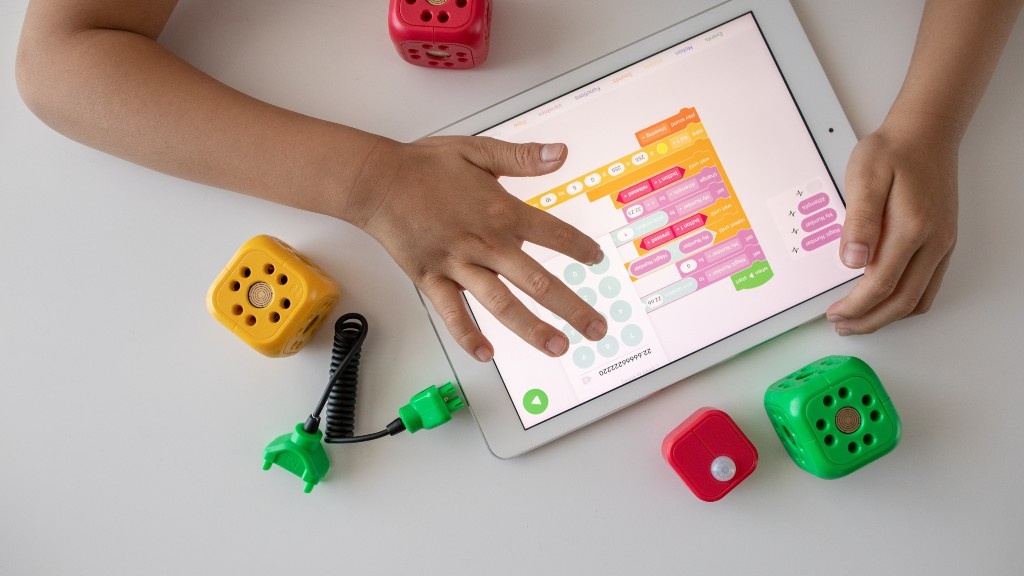How to encourage tech careers through play
Two UOC engineering students are developing a solution to improve the experience of learning about technologyThe project has developed a motherboard with interactive components and online support

"Technology is often explained in a boring way, with limited application to reality, and as a result many young people give up training in this field, despite their initial interest," said Adrià Roig and Nil Solà, students on the University Master's Degree in Telecommunications Engineering run by the Faculty of Computer Science, Multimedia and Telecommunications at the Universitat Oberta de Catalunya (UOC).
In addition to being engineering students, Roig and Solà have also worked with children in after-school activities for many years, and this has given them a different perspective on education – one which is based more on leisure and play. This, and having seen that a large proportion of students who are initially interested in technology stop studying it because the learning system in its current form is theoretical and not very exciting, led them to develop SensIT. It is a platform which provides basic knowledge of electronics and technology through gamification, in order to improve the students' experience and encourage them to take an interest in the field.
A circuit board to play with and acquire knowledge
SensIT is initially designed for young people in secondary school, although it can be adapted to different levels and ages. It could also be applied to Engineering studies, according to Roig and Solà. It offers two main features: first, a modular electronic motherboard with interactive components, allowing the user to play while acquiring knowledge about technology in a practical way at the same time. The board contains LED screens, temperature, humidity and proximity sensors, horns, buttons, switches and much more. Students interact with the platform and learn about concepts of technology in a tangible way, while touching and experimenting with it.
The second part of the solution is an interactive website with all the materials, where the data generated by the modules connected to the motherboard can be displayed. All the content is covered from the perspective of gamification, and supported by a teacher who acts as an online mentor for the students. "The students are in a kind of escape room and in order to get out of it, they have to solve puzzles and problems with the help of the circuit board. Among the problems they have to overcome are programming code to turn on an LED sequence, integrating a numeric keypad into the motherboard, and guessing a password using the measurements made by one of the sensors," explained the young engineers.
Roig and Solà's project turns learning about technology, which usually focuses on memorizing formulas, theories and abstract knowledge, into a dynamic and fun experience, in which students can learn in a practical way and through play.
Learning both technology and values
The young UOC students emphasize that knowledge of the curriculum is not the only thing that the students take away with them, and that "through the narratives that are generated on the platform, they will also develop values that are essential for their daily life, such as collaboration, teamwork, self-improvement and independent learning." In a world in which technology is ubiquitous, especially among young people, Roig and Solà believe that "it is necessary to take advantage of their inherent ease and close relationship with technology so that, apart from having fun, they can learn with it and about it."
Finalists in the entrepreneurship programme
The project was one of eight selected for the 2022 SpinUOC, the UOC community's entrepreneurship and knowledge transfer programme, organized through the Hubbik platform, which facilitates projects by students, alumni, faculty, course instructors, researchers and administrative staff of the university.
This project supports Sustainable Development Goal (SDG) 4: Ensure inclusive and equitable quality education and promote lifelong learning opportunities for all.
UOC R&I
The UOC's research and innovation (R&I) is helping overcome pressing challenges faced by global societies in the 21st century, by studying interactions between technology and human & social sciences with a specific focus on the network society, e-learning and e-health.
The UOC's research is conducted by over 500 researchers and 51 research groups distributed between the university's seven faculties, the E-learning Research programme, and two research centres: the Internet Interdisciplinary Institute (IN3) and the eHealth Center (eHC).
The University also cultivates online learning innovations at its eLearning Innovation Center (eLinC), as well as UOC community entrepreneurship and knowledge transfer via the Hubbik platform.
The United Nations' 2030 Agenda for Sustainable Development and open knowledge serve as strategic pillars for the UOC's teaching, research and innovation. More information: research.uoc.edu #UOC25years
Experts UOC
Press contact
-
Editorial department
